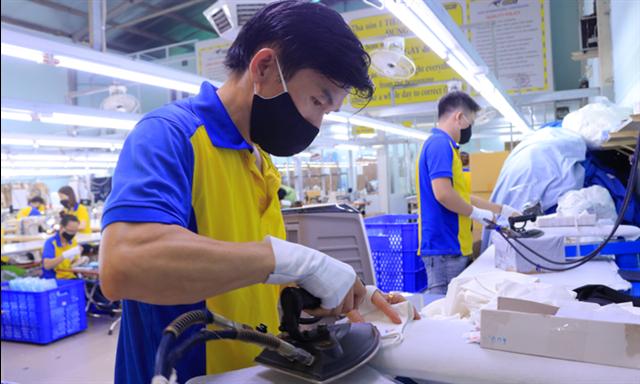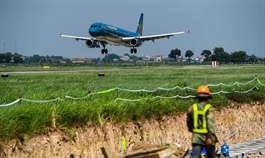Vietnam’s recovery to be on track next year: HSBC
Vietnam’s recovery to be on track next year: HSBC
Vietnam’s economy will continue its recovery next year spurred by trade, foreign capital flows and domestic consumption, HSBC has said.
A worker irons garment products at a factory in Tan Binh District, Ho Chi Minh City in April 2020. Photo by VnExpress/Nguyet Nhi.
|
Tim Evans, the bank’s CEO in Vietnam, said in a note that trade deals such as the Vietnam - U.K. Free Trade Agreement, for which negotiations have concluded, the EU-Vietnam Free Trade Agreement, which has come into effect, and the Regional Comprehensive Economic Partnership, which has been signed, are firm foundations for increasing exports.
"These agreements will help Vietnam diversify export markets and trading partners, which is also one of the best ways to minimize risks from excessive dependence on a specific trading partner which Covid-19 has made apparent."
With its strong economy and ability to contain the novel coronavirus, it would not be difficult for Vietnam to continue to be a bright spot in the region, especially in electronics manufacture, he added.
HSBC analysts had forecast in October that Vietnam would grow at 2.6 percent this year.
Though the lowest growth rate for the country in years, Vietnam will be the only ASEAN country to record growth this year, they said.
The bank forecast a growth of 8.1 percent next year, while the Asian Development Bank and the International Monetary Fund peg it at 6-6.5 percent.
However, there are actions that Vietnam need to take in order not to miss growth opportunities.
It needs to push the equitization of state-owned companies, as the delay of this will lower the opportunity for positive growth, Evans said.
The equitization of these companies will help reallocate investment capital, liberating labor productivity, he added.
Improving customs and administrative procedures will be key to attracting foreign direct investors. World Bank data shows that companies in Vietnam have to spend 384 hours a year for the completing of forms, preparing and paying taxes.
The country should also focus on achieving sustainable growth. In the last two decades Vietnam has emerged as the fastest growing greenhouse gas emitter in the world with an increase of around 5 percent annually.
Pushing the transition to green energy is an urgent matter, he said, adding that the Vietnamese government has seen the importance of this and is making efforts to lessen impacts on the environment.
Vietnam, with a record high foreign currency reserves, has the resources to keep the exchange rate stable.
With the pandemic stifling economic activity, Vietnam has set a revised GDP growth target of 2-3 percent this year, down from the 7.02 percent it achieved last year.
























